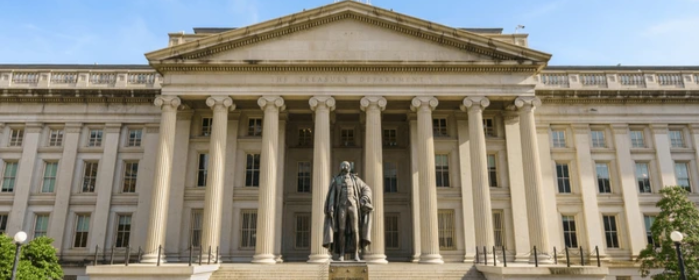The U.S. Department of the Treasury has opened a public consultation to implement the GENIUS Act, a law signed in July 2025 aimed at establishing a regulatory framework for payment stablecoins. This decision is significant for issuers, custodians, compliance teams, and investors because of its implications for AML, federal-state supervision, and taxation, as well as its potential impact on the adoption and liquidity of dollar-backed assets.
The comment period, which began on September 19, aims to fine-tune the rule before implementation and could shape the development of the U.S. stablecoin market.
Context and Impact of the GENIUS Act
The central debate focuses on how to balance innovation and protection in payment stablecoins, promoting innovation in payment stablecoins while protecting consumers, mitigating illicit finance risks, and ensuring financial stability.
The GENIUS Act requires permitted issuers to comply with the Bank Secrecy Act (BSA) and maintain robust AML and sanctions programs, raising compliance standards in the sector. The law establishes a federal-state supervision framework and allows foreign-supervised issuers to operate in the U.S., seeking a balance between regulatory uniformity and flexibility.
The law also includes studies on algorithmic stablecoins and anticipates the need for IRS guidance, factors that could affect product design and reporting decisions.
Technical definition
The Bank Secrecy Act (BSA) is the U.S. law that imposes anti-money laundering obligations and suspicious activity reporting on financial institutions.
Implications and Key Points
In terms of operational compliance, issuers will need to implement AML and sanctions programs along with monitoring systems, which will increase costs and require investment in technology.
Regulatory risk and fragmentation could raise the compliance burden and slow market entry if federal-state coordination is not well-calibrated.
For international competitiveness, the framework aims to maintain the position of the U.S. compared to the EU and other jurisdictions that already regulate stablecoins.
Fiscal uncertainty related to the need for IRS guidance may delay product and reporting decisions by custodians and managers.
The GENIUS Act, signed in July 2025, triggered the public consultation in September 2025. It subjects issuers to BSA/AML, mandates studies on algorithmic stablecoins, establishes a federal-state supervision framework, and includes mechanisms for foreign-supervised issuers. The use of technologies such as AI to detect illicit activity is also mentioned as a likely tool.

The next step will be the closure of the comment period, after which the Treasury will translate the responses into guidance and potential executive rules, defining timelines and requirements that will influence the adoption, liquidity, and compliance of dollar-tokenized products.

